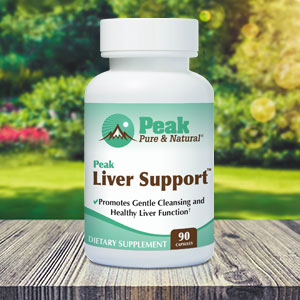Get Easy Health Digest™ in your inbox and don’t miss a thing when you subscribe today. Plus, get the free bonus report, Mother Nature’s Tips, Tricks and Remedies for Cholesterol, Blood Pressure & Blood Sugar as my way of saying welcome to the community!
How vitamin C conquers belly fat

Winter weather seems to magnify all your aches and pains, especially if arthritis is involved.
But there’s a vitamin that can go a long way in soothing those pains…
Recently I wrote about how squatting more, and taking vitamin C, can help your joints produce more synovial fluid — your body’s natural lubricant.
But another way to ensure joint health is to maintain a healthy weight…
Research shows that losing just ten pounds over ten years may cut your risk of developing arthritis by more than 50 percent!
Of course, losing weight can’t repair damage that’s already been done to your joints, but it can help decrease pain and slow further progression of arthritis.
And you may be surprised to learn how much vitamin C can help here, too…
That dangerous ‘spare tire’ cycle
In addition to causing pain in arthritic joints, carrying too much belly fat puts you at risk for serious life-threatening consequences.
Excess abdominal fat not only releases an overabundance of hormones that alter cholesterol levels, raise blood pressure and reduce insulin use — but these poorly functioning hormones also make is easier for you to pack on the weight.
This puts you at higher risk for heart disease and stroke — and this metabolic nightmare creates a cycle that makes it harder for your body’s systems to work together to keep you healthy.
So, how can vitamin C help?
Your secret weapon for weight loss
Vitamin C and glucose have similar chemical structures. They are constantly competing to get into your cells, and vitamin C is at a distinct disadvantage.
There is a receptor called the Glut-1 receptor that allows both glucose and C to enter our cells. Unfortunately, it likes glucose a lot better! This means that vitamin C has to show up in greater numbers in order to get in.
When you are vitamin C deficient, much more glucose enters your cells than what your body requires to meet its daily energy needs. This triggers the production of insulin.
Insulin helps the body absorb glucose, while at the same time telling your body to stop burning stored fat and to turn its attention to absorbing what’s coming in.
See the connection? Not enough vitamin C … too much glucose … more insulin … less fat-burning …. spare tire.
For exercise to work, you need your C!
Experts at Harvard University Medical School recommend moderate physical activity at least 30 minutes per day as optimal for reducing belly fat. Now, if you have arthritis pain you may be limited as to how much you can do — so this is why ample vitamin C is especially beneficial to you…
Without adequate vitamin C, your body will not burn fat as efficiently as it should, even with a good exercise regimen.
Quite simply, vitamin C is needed for fat metabolism. So, without enough of it, you won’t lose much belly fat, even if you exercise!
One study found that people with adequate intake of vitamin C oxidize 30% more fat during moderate exercise than those with a low intake.
Vitamin C prevents adrenal ‘panic’ and weight gain
Supporting your adrenal glands with adequate amounts of vitamin C can short-circuit another chain of events that results in weight gain.
The highest concentration of vitamin C in the body is found in the adrenal glands. vitamin C is essential to produce cortisol, the ‘fight-or-flight’ stress hormone.
Without an adequate supply of vitamin C, your adrenal glands ‘panic,’ and actually produce more cortisol. This wreaks havoc on your blood sugar which, as we have seen, leads directly to the accumulation of that unhealthy belly fat.
Making vitamin C part of your daily diet
Be careful about looking to juices to get your vitamin C, because you’ll also get a boatload of added sugars. Vitamin C is readily available in a wide range of fruits and vegetables. Some of those with the highest concentration of C are:
- Sweet red pepper, ½ cup raw, 95 mg.
- Kiwi fruit, 1 fruit, 91 mg.
- Strawberries, 1 cup, 85 mg.
- Orange, 1 medium, 70 mg.
- Broccoli, ½ cup cooked, 51 mg.
- Grapefruit, ½ medium, 38 mg.
- Tomato, 1 medium, 16 mg.
- Spinach, 1 cup raw, 8 mg.
You can also take a daily vitamin C supplement. The daily recommended intake is at least 65-90 mg. per day to avoid deficiency, but that’s the bare minimum. A higher dosage of 200 to 400 mg. per day has been shown to bring vitamin C levels up to a steady state in the blood.
That doesn’t mean you can’t take more if you want to. The tolerable upper limit is 2,000 mg a day. Although too much dietary vitamin C is unlikely to be harmful, megadoses of vitamin C supplements might cause diarrhea. So if you want to increase it, try it in increments of 500 mg and see how your body tolerates it.
Editor’s note: Are you feeling unusually tired? You may think this is normal aging, but the problem could be your master hormone. When it’s not working, your risk of age-related diseases skyrockets. To reset what many call “the trigger for all disease” and live better, longer, click here to discover The Insulin Factor: How to Repair Your Body’s Master Controller and Conquer Chronic Disease!
Sources:
- The relationship between glucose and vitamin C plays a huge role in health — Natural News
- How Insulin Really Works: It Causes Fat Storage… But Doesn’t Make You Fat — Muscle For Life
- Does Vitamin C Help You Lose Stomach Fat? — azcentral.com
- Detox, reduce stress and lose belly fat with vitamin C — Chatelaine
- Strategies for healthy weight loss: from vitamin C to the glycemic response — The Journal of the American College of Nutrition
- Heal Your Adrenal Glands And Lose Weight (No Dieting Needed!) — Family, Home, and Health
- Facts about Vitamin C and Adrenal Fatigue — Deliberately Healthy
- Vitamin C Dosage to Help Lower Cortisol — LIVESTRONG.COM
- The triple miracle of vitamin C — Easy Health Options
- The Benefits of Vitamin C — WebMD














